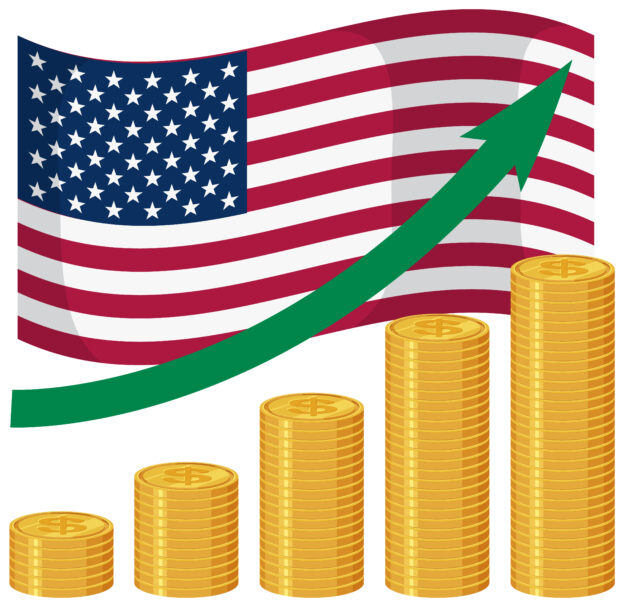• Impacts Alcobev Sector
• Economic Uncertainty Prevails
The second term of Donald J. Trump as the United States President which began early this year has disrupted the world economic order. Trump’s sweeping tariffs on imports from almost all countries, including the US’s allies, has led to an international trade war, the ramifications of which are being felt in the stock markets, in trade disruption and creating economic uncertainty globally.
However, on April 9, under severe pressure from the bloodbath in the global stock markets and world leaders criticizing his move, Trump has paused for 90-days most of his exorbitant tariff hikes to 57 countries but with a baseline tariff of 10% while going aggressive on China by imposing an astounding 125% tariff.
India termed ‘Tariff-King’
As regards India, which is one of the US’s biggest trading partners in Asia, Trump has imposed a ‘discounted’ reciprocal tariff of 26%, while calling India the ‘tariff king’. Trump has claimed that the reciprocal tariff is aimed at countering unfair trade practices. The 26% tariff came into effect from April 9. Though he claimed that the Prime Minister, Narendra Modi is a great friend of his, Trump said India was charging 52%, while the US was charging almost nothing.
India subsequently slashed duty on bourbon whiskey from 150% to 100%, making the Indian liquor manufacturers take up the issue. The Director General of the Confederation of Indian Alcoholic Beverage Companies (CIABC), Anant S. Iyer said the Indian alcoholic beverage industry is already at a disadvantage compared to manufacturers from developed countries due to high capital and operational costs, evaporation losses, and restrictive licensing regimes. He said, “The government needs to safeguard the interests of Indian liquor manufacturers when deciding on issues related to customs duty cuts and other concessions under FTAs.” The CIABC wanted the state governments to withdraw all excise concessions given to imported liquor, arguing that the customs duty cuts announced would harm Indian products in both the spirits and wine categories.
Bilateral Trade
The bilateral trade between India and the US was pretty balanced at 10.73% till the Trump disruption. America accounted for about 18% of India’s total goods exports, 6.22% in imports with about 30 sectors (6 in agriculture, 24 in industry) exporting to the US. As regards alcohol, wine and spirits, the tariff hike at 122.10% has come into effect. As per the data from the Export Import Data Bank (EIDB) of the Ministry of Commerce & Industry, in FY24, India imported spirits worth $23.09 million against exports of only $8.03 million with companies such as Radico Khaitan, Amrut Distilleries, Piccadilly Industries, being the prominent ones.
The concern among Indian companies is that lower import duties might push the prices of premium liquor down, thus making Indian premium liquor face stiffer competition. However, at a panel discussion organised by Ambrosia during INDSPIRIT 2025, the Secretary General of the International Spirits and Wines Association of India (ISWAI), Suresh Menon clearly stated that there was need to rationalise the tax structure, while agreeing that the Indian import duties on spirits was exceptionally high.
Scotch Whisky Association ‘disappointed’
Globally, the tariff war is impacting almost all sectors, including the alcobev sector. The Scotch Whisky Association expressed disappointment with Trump’s tariff moves. With Trump announcing import duties, including a 10% levy on all UK goods and a steeper 20% rate for imports from the European Union, taking effect on April 5, the alcobev sector was going to be adversely impacted. “The move, one of the most aggressive protectionist measures in recent years, has sparked concern across multiple sectors, including scotch whisky producers. A spokesperson for the Scotch Whisky Association said,”The industry is disappointed that Scotch Whisky could be impacted by these tariffs. We welcome the intensive efforts by the UK government to reach a deal with the US administration, and we continue to support this measured and pragmatic approach towards a mutually beneficial resolution.”
Wine sector concerned
It is not just the Scotch whisky producers who are worried, even the bourbon industry from the US is. The bourbon industry which is the backbone of Kentucky economy fears that it may get caught in the crossfire of the trade war, if other countries impose tariffs on American whiskey. There has been a lot of noise on how in the short-term Scotch whisky and European wines may become that much costlier. France’s Bourgogne Wine Board (BIVB) has said that the levies have “pushed our wines past a psychological price threshold”. French wines are subject to 20% tariffs under the new tariff rates.
The IWSR, in its analysis, has said that the new import tariffs will have serious consequences for beverage alcohol in the US, but the exact picture is complex, nuanced and subject to a host of uncertainties.
The IWSR said that with tariffs introduced on imports from Canada and Mexico and potential EU tariffs in discussion, a number of single origin beverage alcohol categories are most at risk – products with a legally protected designation of origin, meaning that they cannot be “re-shored” and produced in the US. These include agave spirits, Canadian whisky, Irish whiskey, Cognac, Champagne and Prosecco. Mexican beer imports would also be affected. The UK is trying to negotiate a separate trade deal with the US to head off tariffs to cover categories such as Scotch whisky.
“The second Trump Administration’s policies on tariffs will almost certainly be net negative for total beverage alcohol (TBA) in the US market, with global implications likely to be more limited, but there is major uncertainty about the extent of the impact,” says Marten Lodewijks, President IWSR US.


